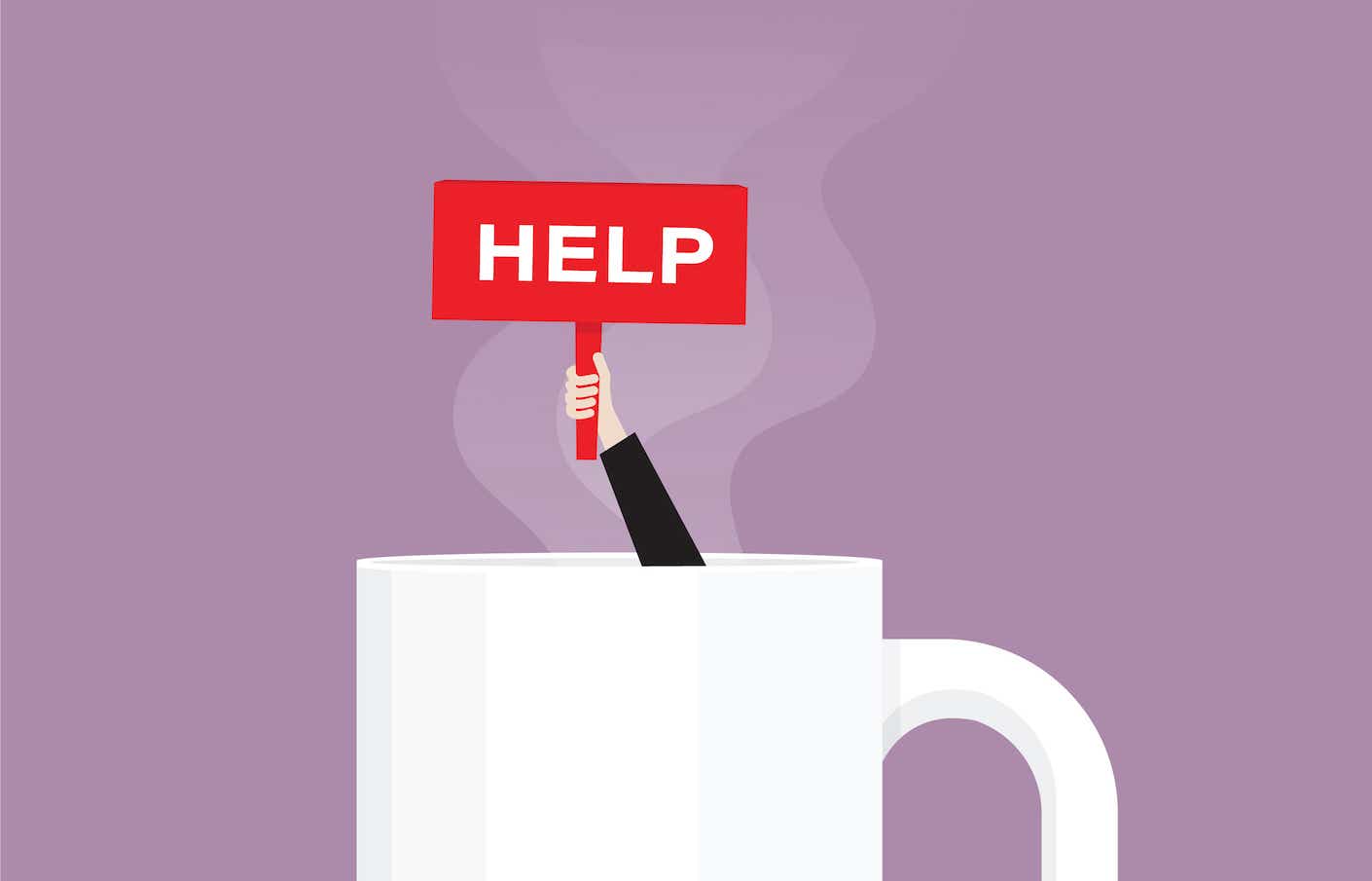Are you someone who gets jittery or anxious after drinking a cup of coffee? Do you have trouble sleeping at night, even if you have just one cup of joe in the morning? Despite these issues, do you still need a boost of energy to help you get through the day?
If the physical impacts of coffee deter you from drinking it, you’re probably one of the millions of Americans who have a slow caffeine metabolism. This might sound frustrating, but don’t fret. We spoke with our favorite nutrition expert, Mark Hyman, MD, to explain what this means and how a new beverage called Update can help you wake up without the physical side effects.
What is metabolism?
We traditionally think of metabolism as how our body processes fats, carbs, and protein. If you have a “fast metabolism,” it means your body processes and uses calories quickly. On the other hand, according to Dr. Hyman, “If you have a slow metabolism, it means your mitochondria aren’t burning calories quickly.”
Whether you’re a fast or slow metabolizer, on a very general level there are two phases of metabolism when your body is working correctly — the first helps your body break enzymes down, and the second helps you eliminate them so they don’t build up in your body. Enzymes are proteins that help control the speed of metabolism, or the chemical reactions in our bodies. They build up some substances and break others down.
Dr. Hyman explains, “There are thousands of enzymes that all serve a different purpose in the metabolic process.” For example, lactase is an enzyme that breaks down lactose, a type of sugar found in milk. If your small intestine doesn’t produce enough lactase, you’re going to have trouble breaking down lactose, and consuming dairy can lead to some uncomfortable (physically and socially) symptoms. The same goes for the coffee enzyme: “People metabolize the caffeine enzyme at different rates,” says Dr. Hyman, “which leads to different effects on the body.”
What does it mean if I’m a slow caffeine metabolizer?
Dr. Hyman describes fast versus slow coffee metabolism as either having a “superhighway” or a “dirt path” for processing the caffeine enzyme. “If you have a fast caffeine metabolism, think of it as a superhighway.” He says, “You can drink coffee at night and still fall asleep easily. If you’ve got a slow caffeine metabolism, think of it as a dirt path. You may drink coffee in the morning and still be unable to sleep at night.”
There are several signs that you’re a slow caffeine metabolizer, and most of them will make you feel uncomfortable. You’ll likely have negative side effects when you consume any sort of caffeine, including jitters, nervousness, and increased heart rate.
No matter your height or size, when you consume the same compound at the same dose, your genetics will determine how your body reacts to caffeine. “The speed with which you metabolize different enzymes is largely genetic and out of your control,” explains Dr. Hyman. “It’s just like whether you have blue eyes or brown eyes.”
If you have a slow caffeine metabolism, how can you avoid these side effects but still maintain energy throughout the day?
When your body metabolizes caffeine, it gets broken down into three molecules, one of which is called paraxanthine. This metabolite has some special qualities that caffeine lacks as an enzyme. According to Dr. Hyman, “If you isolate and consume paraxanthine, which is one of the metabolites of caffeine, you’re able to get the benefits of caffeine without the negative side effects.” You can think about it like drinking milk without lactose.
“Paraxanthine won’t cause side effects but will still have the cognitive benefits you would get from consuming caffeine. It won’t cause sleep interruption and it won’t cause cardiac issues, but it will increase dopamine, wakefulness, and cognitive benefits. It’s almost like you’re hacking your system to get the positive effect of caffeine without actually consuming caffeine.”
According to the NIH: “Compared to caffeine, paraxanthine exhibits lower toxicity, lesser anxiogenic properties, stronger locomotor activating effects, greater wake-promoting properties, and stronger dopaminergic effects.”
What’s a source of paraxanthine that I can use to replace caffeine?
Courtesy of Dr. Mark. Hyman
On its own, paraxanthine is difficult to find. But a new beverage called Update, has managed to isolate paraxanthine to provide you with energy and focus without any of the negative side effects that are typical of caffeine. You can drink it at any point during the day without worrying about sleep issues, and it won’t cause anxiety or jitters.
Even if you’re a fast caffeine metabolizer, you may deal with the dreaded caffeine crash, or symptoms of withdrawal. If you take your coffee with cream and sugar, it adds a significant amount of fat and calories to your daily intake. Update is a flavorful, low-calorie, zero-sugar substitute that will give you the jump start to the day that you need.










